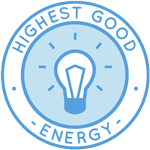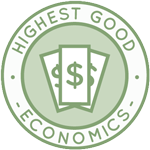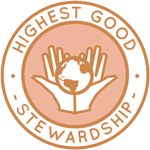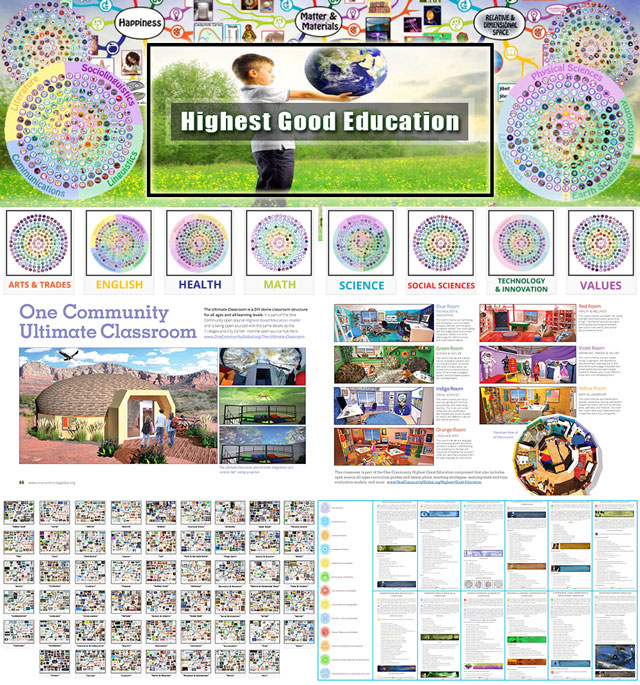Permaculture Communities – One Community Weekly Progress Update #298
Let’s create a global network of permaculture communities working together to consciously steward our planet towards sustainability. Doing this will benefit all people and life here. One Community’s contribution is open source and free shared tools, tutorials, and DIY instructions for sustainable and “Highest Good” approaches to food, energy, housing, education, for-profit and non-profit economic design, social architecture, fulfilled living, global stewardship practices, and more.
- Here’s our project overview
- Here’s our world-change methodology
- Here’s how this becomes self-replicating
- Here’s how we are open source and free-sharing all the do-it-yourself designs

OUR MAIN OPEN SOURCE HUBS
Click on each icon to be taken to the corresponding Highest Good hub page.
One Community’s physical location will forward this movement as the first of many self-replicating teacher/demonstration communities, villages, and cities to be built around the world. This is the December 9, 2018 edition (#298) of our weekly progress update detailing our team’s development and accomplishments:
Permaculture Communities
One Community Progress Update #298
Here is the bullet-point list of this last week’s design and progress discussed in detail in the video above:
PERMACULTURE COMMUNITIES INTRO: @0:34
PERMACULTURE COMMUNITIES – HIGHEST GOOD HOUSING: @7:35
- Anvita Kumari Pandey completed her 27th week volunteering and now helping with the Earthbag Village Materials and Costs (see below)
- Guy Grossfeld continued his work helping with render corrections and PhotoShop additions for the Earthbag Village (see below)
- Dan Alleck finished final Earthbag Village render showing a view looking down on the entry to the Tropical Atrium (see below)
- Shadi Kennedy completed his 33rd week leading the development of the Murphy bed instructions (see below)
- Elizabeth Kahn joined the team and completed her first week researching the most sustainable toilet options (see below)
PERMACULTURE COMMUNITIES – DUPLICABLE CITY CENTER: @9:15
- Continued working on the Sketchup Duplicable City Center updates for the Social Dome and Dining Dome (see below)
- Began our final review of the City Center lighting spreadsheet, light placement, symbols, and layers in AutoCAD, and correlating website details for the Basement, Boiler Room, Library, and public restrooms (see below)
- Continued developing the Duplicable City Center Sprinkler and Emergency Systems Design page (see below)
- Integrated a LEED Professional’s detailed review of the City Center LEED lighting tutorial (see below)
- Dipti Dhondarkar continued developing the lighting specifics for the City Center (see below)
- Tanya Griffin, Aubryanne Boyle, and Allie Marsh joined the team and completed their 1st week helping with the Duplicable City Center interior design details (see below)
- Anvita Kumari Pandey continued updating the Duplicable City Center Materials and Costs details by fixing all the images on the spreadsheet (see below)
- James Herrigel joined the team and completed his 1st week researching the best, safest, and most sustainable paints, carpet, and other building materials (see below)
PERMACULTURE COMMUNITIES – HIGHEST GOOD FOOD: @11:47
- Continued writing the behind-the-scenes narrative and detailed food rollout plan for the various stages of development (see below)
PERMACULTURE COMMUNITIES – HIGHEST GOOD EDUCATION: @12:23
- With over 8 years of development invested in the Education for Life component, this part of One Community is now complete enough to no longer focus and report on it with weekly updates. That is, of course, until we move onto the property and continue the development and open sourcing process with teachers and students. Visit the Education section below for links to all the completed elements of this component and details on the final remaining action items for this area of One Community before moving onto the property and fully launching it.
PERMACULTURE COMMUNITIES – HIGHEST GOOD SOCIETY: @13:28
- Emilio Nájera researched keywords for two more of our top-level food-related pages: the Hoop Houses and Food Forest pages (see below)
- Highest Good Network software team consisting of Shubhra Mittal, Aishwarya Singh, Jordan Miller, and Tyler Calvert continued developing the software (see below)
PERMACULTURE COMMUNITIES SUMMARY: @14:38
- How you can most help us right now and how anyone can help
CLICK HERE IF YOU’D LIKE TO RECEIVE AN EMAIL EACH WEEK WHEN WE RELEASE A NEW UPDATE
YOU CAN ALSO JOIN US THROUGH SOCIAL MEDIA
ONE COMMUNITY WEEKLY UPDATE DETAILS
PERMACULTURE COMMUNITIES – HIGHEST GOOD HOUSING PROGRESS
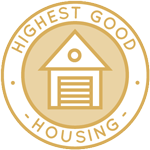 One Community is open-source supporting permaculture communities through Highest Good housing that is artistic and beautiful, more affordable, more space efficient, lasts longer, DIY buildable, and constructed with healthy and sustainable materials:
One Community is open-source supporting permaculture communities through Highest Good housing that is artistic and beautiful, more affordable, more space efficient, lasts longer, DIY buildable, and constructed with healthy and sustainable materials:
- Learn about: Our Upcoming Crowdfunding Campaign
- Learn about the different village models: 7 Sustainable Village Models
- Visit the open source portals for the first two: Earthbag Village OS Hub | Straw Bale Village OS Hub
This week Anvita Kumari Pandey (Civil Engineer) completed her 27th week volunteering and now helping with the Earthbag Village Materials and Costs. She worked on the Tropical Atrium cost analysis making corrections to the material quantities, researching additional materials, and adding materials purchasing urls. You can see some of this work here.
Guy Grossfeld (Graphic Designer) also continued his work helping with render corrections and PhotoShop additions for the Earthbag Village (Pod 1). This week Guy completed two more 2nd-generation views including this one of the Complete Village:
…..and this view looking Southwest at the Tropical Atrium.
Dan Alleck (Designer and Illustrator) completed his 31st week helping with render additions. This week he finished this final Earthbag Village (Pod 1) render showing a view looking down on the entry to the Tropical Atrium. This image is now on the site too.
Shadi Kennedy (Artist and Graphic Designer) also completed his 33rd week leading the development of the Murphy bed instructions. This week he continued redesigning the support wall to be simpler to design and created new assembly instructions for it, focusing on permaculture communities. You can see some of this work here.
And Elizabeth Kahn (Environmental Consultant) joined the team and completed her first week researching the most sustainable toilet options. You can see some of her initial water-saving and composting toilet research here.
PERMACULTURE COMMUNITIES – DUPLICABLE CITY CENTER PROGRESS
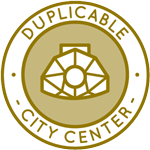 One Community is open-source supporting permaculture communities through a Duplicable and Sustainable City Center that is LEED Platinum certified/Sustainable, can feed 200 people at a time, provide laundry for over 300 people, is beautiful, spacious, and saves resources, money, and space:
One Community is open-source supporting permaculture communities through a Duplicable and Sustainable City Center that is LEED Platinum certified/Sustainable, can feed 200 people at a time, provide laundry for over 300 people, is beautiful, spacious, and saves resources, money, and space:
- Learn about this building and it’s function: Duplicable City Center Open Source Hub
This week, the core team continued working on the Sketchup Duplicable City Center 3D updates. This week we worked on corrections for the floor thicknesses and levels, researched new 4-panel sliding door options and electric vehicles that can fit through them, updated the Social Dome 2nd-floor court entrance walls, started updating these same walls for the Dining Dome, and removed Dining Dome windows that conflicted with other elements. You can see some of this work here.
The core team also began our final review of the City Center lighting spreadsheet, light placement, symbols, and layers in AutoCAD, and correlating website details for the Basement, Boiler Room, Library, and public restrooms, with the aim of developing permaculture communites. You can see some of this work here.
The core team also continued developing the Duplicable City Center Sprinkler and Emergency Systems Design page. This week we added new overview imagery for the complete design and finished the rest of the Hydraulic Calculations section and also completed the Reservoir Sizing section. You can see some of this work here.
And the core team integrated a LEED Professional’s detailed review of the City Center LEED lighting tutorial. You can see some of these suggestions here.
Dipti Dhondarkar (Electrical Engineer) also continued developing the lighting specifics for the City Center, emphasizing permaculture communities. This is Dipti’s 107th week volunteering on this task and the focus this week was integration of suggested edits and continuation of adding lights to floor 2 of all three domes. You can see some of this work here.
Tanya Griffin, Aubryanne Boyle, and Allie Marsh (Interior Designers from Lotus Designs) also joined the team and completed their 1st week helping with the Duplicable City Center interior design details. This week they researched initial color pallets, flooring and furniture options. Some of which you can see here.
Anvita Kumari Pandey (Civil Engineer) also continued updating the Duplicable City Center Materials and Costs details by fixing all the images on the spreadsheet. You can see some of this work here.
And James Herrigel (Student Researcher) also joined the team and completed his 1st week researching the best, safest, and most sustainable paints, carpet, and other building materials by reviewing and taking notes on the LEED Sustainable Building crediting system with a focus on Building Design and Construction. You can see some of this work here.
PERMACULTURE COMMUNITIES – HIGHEST GOOD FOOD PROGRESS
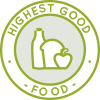 One Community is open-source supporting permaculture communities through Highest Good food that is more diverse, more nutritious, locally grown and sustainable, and part of our open source botanical garden model to support and share bio-diversity:
One Community is open-source supporting permaculture communities through Highest Good food that is more diverse, more nutritious, locally grown and sustainable, and part of our open source botanical garden model to support and share bio-diversity:
- Learn about the structures: Hoop House Hub | Aquapini & Walipini Open Source Hub
- See what we’ll be growing: Gardens & Hoop Houses | Large-scale Structures | Food Forest | TA
This week the core team continued writing the behind-the-scenes narrative and detailed food rollout plan for the various stages of development. This week we continued researching information on goats, started exploring fencing options, and added details to our aquaculture plans, all aimed at creating permaculture communities. You can see some of this behind-the-scenes work here.
PERMACULTURE COMMUNITIES – HIGHEST GOOD EDUCATION PROGRESS
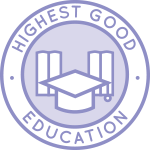 One Community is building the foundations for how humanity creates a sustainable world through Highest Good education that is for all ages, applicable in any environment, adaptable to individual needs, far exceeds traditional education standards, and more fun for both the teachers and the students. This component of One Community is about 95% complete with only the Open Source School Licensing and Ultimate Classroom construction and assembly details remaining to be finished. We’ll report on the final two elements to be finished as we develop them.
One Community is building the foundations for how humanity creates a sustainable world through Highest Good education that is for all ages, applicable in any environment, adaptable to individual needs, far exceeds traditional education standards, and more fun for both the teachers and the students. This component of One Community is about 95% complete with only the Open Source School Licensing and Ultimate Classroom construction and assembly details remaining to be finished. We’ll report on the final two elements to be finished as we develop them.
With over 8 years of work invested in the process, the sections below are all complete until we move onto the property and continue the development and open sourcing process with teachers and students – a development process that is built directly into the structure of the education program and everything else we’re creating too:
- Program Overview: Education Open Source Hub
- How the components work together: How to use the Education for Life Program
- Lesson Plans for Life – Lesson Plans How-to
- Foundations of Outstanding Leaders, Teachers, and Communicators
- Curriculum for Life
- Teaching Strategies for Life
- Learning Tools and Toys for Life
- Evaluation and Evolution
PERMACULTURE COMMUNITIES – HIGHEST GOOD SOCIETY PROGRESS
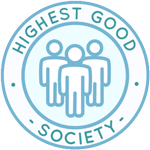 One Community is open-source supporting permaculture communities through a Highest Good society approach to living that is founded on fulfilled living, the study of meeting human needs, Community, and making a difference in the world:
One Community is open-source supporting permaculture communities through a Highest Good society approach to living that is founded on fulfilled living, the study of meeting human needs, Community, and making a difference in the world:
- Read the Highest Good society overview: Highest Good Society
- Learn about the model for fulfilled living and sharing: A Day in the Life
- Learn about the 4 economic models: RBE | For-profit | Non-profit | Entrepreneurship
- Learn about our open source community collaboration and management software: The Highest Good Network
Emilio Nájera (Digital Marketer) also continued with his 9th week as part of the marketing team. This week he researched keywords for two more of our top-level food-related pages: the Hoop Houses and Food Forest pages. You can see some of this work here.
In addition to this, the Highest Good Network software team consisting of Shubhra Mittal (Software Delivery Manager), Aishwarya Singh (Computer Science Engineer), Jordan Miller (Web Developer), and Tyler Calvert (Full-stack Software Engineer) continued developing the software. This week the team created code and unit test cases for updating passwords, fixed profile picture bugs, made sure all forms pass into state for Time Entry, added an ESLint (airbnb style guide), and added all the get routes to the Redux State, all with our goal of developing permaculture communities in mind. You can see some of this work here.
AND WE PRODUCED THIS WEEKLY UPDATES BLOG – CLICK HERE TO SUBSCRIBE
FOLLOW ONE COMMUNITY’S PROGRESS (click icons for our pages)
INVESTOR PAGES
GET INVOLVED
CONSULTANTS | WAYS ANYONE CAN HELP | MEMBERSHIP
CLICK HERE FOR ALL PAST UPDATES
WHAT ONE COMMUNITY IS CREATING
One Community is creating a place to grow together and change the world together. We are creating a space that helps each other live in integrity with each other and the planet as we strive to be the greatest versions of ourselves. We do this by harmoniously respecting each other, nature, and the rest of our one shared planet.
Our goal is to demonstrate what we feel is the most sustainable, healthy, and fun environment we can create. A place based on compassion, kindness, and collaboration. This replicable community will serve as an example for what is possible, including the development of permaculture communities.
Throughout our design process we are open sourcing and free-sharing everything needed for construction and replication. This includes what we call “Highest Good” approaches to food, energy, housing, education, for-profit and non-profit economics design, social architecture, fulfilled living, stewardship practices, permaculture communities, and more. We are creating these resources for implementation as individual components or complete developments called teacher/demonstration hubs. These hubs will help launch additional hubs as awareness and knowledge grow.
BUILDING THE FIRST OF MANY
One Community will be the first teacher/demonstration hub. It will function as an experiential-learning model that facilitates mass participation to address humanity’s most pressing challenges through: A replicable model for expansion, building seven self-sufficient village/city prototypes, becoming the world leader in open-source sustainability solutions, and evolving and expanding ALL aspects of sustainable living, including the creation of permaculture communities.
INSPIRING SUSTAINABILITY WITH OPEN SOURCE
One Community’s four-phase strategy for the creation of solution models that create solution creating models uses open source blueprints for duplication that simultaneously address all aspects of the human experience (food, energy, housing, education, social inequality and injustice, fulfilled living, etc.). We see these areas as interdependent and requiring a comprehensive solution if humanity is to move ecologically, socially, economically, and permanently towards a truly sustainable future for everyone.
 One Community
One Community